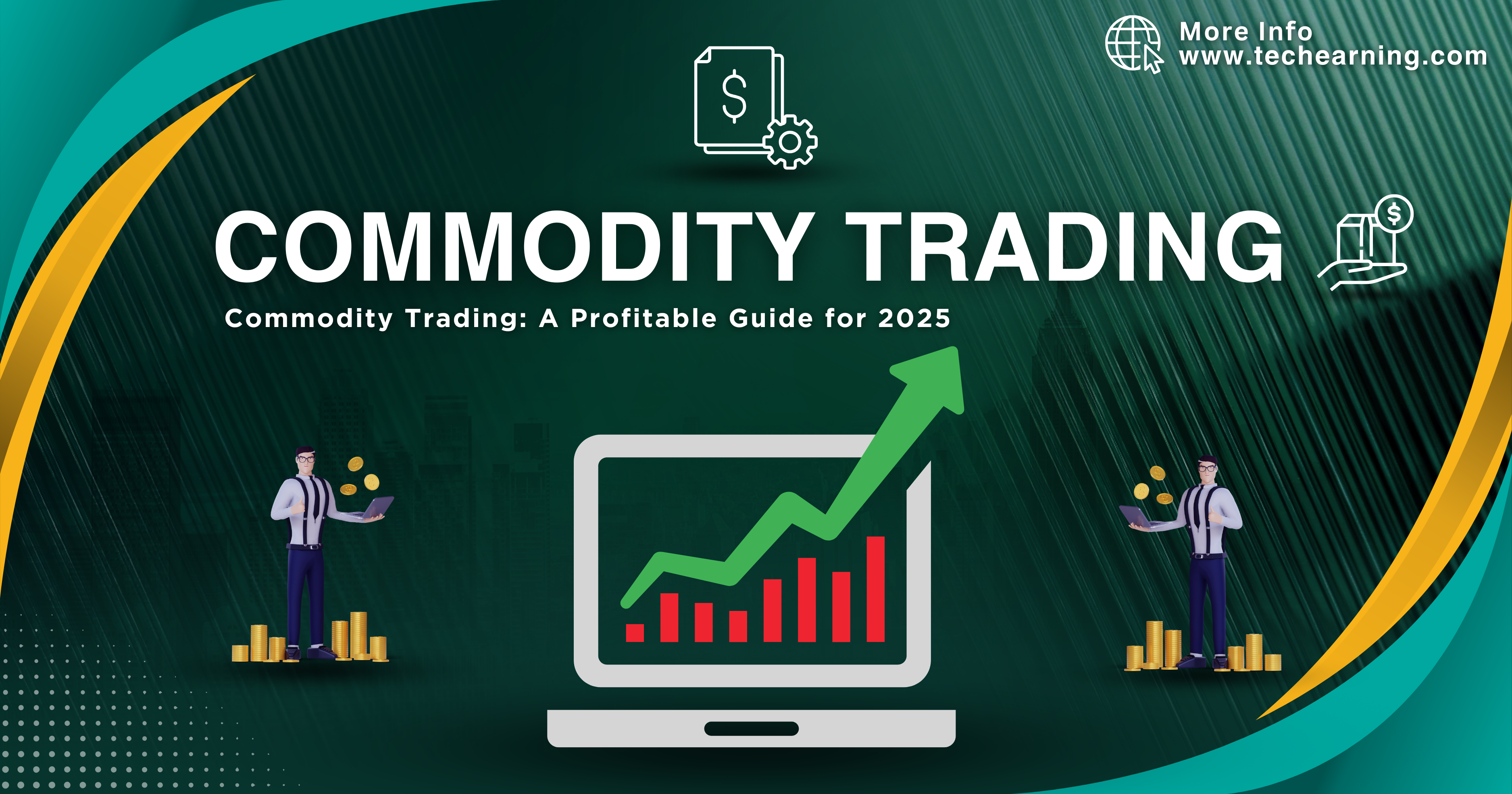
Commodity Trading: A Profitable Guide for 2025
Introduction
Commodity trading is one of the oldest forms of trading in the world, providing investors with an opportunity to trade essential goods such as metals, energy, and agricultural products. In 2025, commodity markets have become more accessible with online platforms, allowing traders to benefit from price fluctuations. In this article, we will explore the concept of commodity trading, its types, benefits, risks, and how you can start trading profitably.
Understanding Commodity Trading
Commodity trading refers to the buying and selling of physical goods or their derivatives in organized markets. These commodities are broadly classified into two categories:
- Hard Commodities – These include natural resources like gold, silver, crude oil, and natural gas.
- Soft Commodities – These include agricultural products like wheat, coffee, sugar, and cotton.
This type of trading can be conducted through futures contracts, spot trading, and options trading, allowing traders to speculate on price movements and hedge against inflation.
Why is Commodity Trading Important ?
Commodity markets play a crucial role in the global economy. They help in price discovery, risk management, and provide liquidity. Investors and businesses use commodity investments as a hedge against inflation and currency fluctuations.
How Does the Trading Process Work ?
The process of trading commodities involves several steps:
- Choosing a Commodity – Traders select a commodity based on market trends and analysis.
- Selecting a Trading Platform – Several online platforms offer commodity trading, including MCX (Multi Commodity Exchange) in India and CME (Chicago Mercantile Exchange) globally.
- Deciding on a Trading Strategy – Traders use fundamental and technical analysis to predict price movements.
- Placing a Trade – Trades can be executed through spot markets, futures contracts, or options.
- Managing Risk – Risk management strategies like stop-loss orders and portfolio diversification are crucial.
Types of Commodity Markets
Commodity investments take place in different types of markets:
- Spot Market – Commodities are traded instantly at the current market price.
- Futures Market – Traders agree to buy or sell commodities at a future date and price.
- Options Market – Traders buy the right, but not the obligation, to trade commodities at a predetermined price.
Benefits of Investing in Commodities
- Diversification – Investing in commodities reduces portfolio risk.
- Hedge Against Inflation – Commodities retain value even during economic downturns.
- High Liquidity – Commodity markets offer ample trading opportunities.
- Leverage Trading – Traders can control large positions with smaller investments.
- Global Market Access – Online platforms provide access to global exchanges.
Risks in Commodity Markets
- Market Volatility – Prices can be highly unpredictable.
- Leverage Risks – Higher leverage can lead to significant losses.
- Regulatory Risks – Government regulations impact trading strategies.
- Geopolitical Factors – Political events can influence commodity prices.
- Supply and Demand Fluctuations – Natural disasters and economic factors affect prices.
How to Start Commodity Investments ?
If you want to start investing in commodities, follow these steps:
- Learn the Basics – Understand market trends and trading strategies.
- Choose a Reliable Broker – Select a broker with a good reputation and low fees.
- Open a Trading Account – Complete the registration process and verify your documents.
- Analyze the Market – Use technical indicators and fundamental analysis.
- Develop a Trading Plan – Define entry and exit points, risk management strategies.
- Start with a Demo Account – Practice before investing real money.
- Monitor and Improve – Continuously evaluate your strategies and market trends.
Best Commodities to Trade in 2025
If you are looking for top commodities to invest in 2025, consider the following:
- Gold and Silver – Safe-haven assets with long-term growth potential.
- Crude Oil and Natural Gas – Highly volatile, providing trading opportunities.
- Agricultural Commodities – Wheat, coffee, and soybeans remain in high demand.
- Industrial Metals – Copper and aluminum are essential for manufacturing and technology sectors.
Conclusion
Commodity investments offer a lucrative opportunity for investors who understand market trends and risk management strategies. By leveraging the right tools and knowledge, you can maximize your profits while minimizing risks. Whether you are a beginner or an experienced investor, the commodity market provides numerous opportunities for financial growth in 2025.
Internal Link
To learn more about digital marketing strategies that can help grow your online trading business, visit our Home Page.